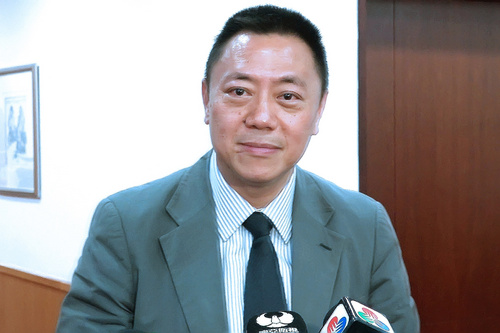 The Secretary for Economy and Finance, Mr Leong Vai Tac, speaks to reporters.
The Secretary for Economy and Finance, Mr Leong Vai Tac, speaks to reporters.
The Secretary for Economy and Finance, Mr Leong Vai Tac, today said introducing “know your customer” (KYC) technology in Macao’s automated teller machines (ATMs) was to prevent people from misusing such cash withdrawal facilities.
Mr Leong told reporters that he noted the KYC technology might have some influence on visitor behaviour, particularly regarding their spending in entertainment resorts. He expected it might take some time for visitors to get used to the new measure.
Under the new measure, holders of UnionPay cards issued by mainland banks will – when using the cards in ATMs in Macao with such KYC features – be required to scan their mainland identity card and undergo a facial recognition check.
Macao’s financial authorities will install in phases KYC technology in all ATMs across the city. The primary phase covered ATMs in or near casinos, said Mr Leong.
Safeguarding the city’s financial stability was a priority of the Government, especially in relation to Macao’s role as a tourist destination popular around the world. New technology in ATMs would also help protect the legitimate rights of cardholders and prevent money laundering in the city, he said.
The Government announced the measure on Sunday (7 May). Holders of UnionPay cards issued in Macao or other places outside the mainland are not affected by the measure.
In addition, Mr Leong disclosed that the Government planned a consultation process in September to hear public departments’ opinions regarding the city’s law on public procurement of goods and services. It would be followed by a public consultation in the first quarter of next year, with the legislation process itself planned for the third quarter of 2018, he said.
The Secretary said a guideline for placing procurement information of departments under the supervision of the Secretary for Economy and Finance had been in place since 1 May. The aim was to allow the public to have easier access to such information.
The guideline requires departments to publish information on their departmental websites, in cases where a good or service to be acquired has an estimated cost over 750,000 patacas or where a construction project requested has an estimated cost or capital value of over 2.5 million patacas.


